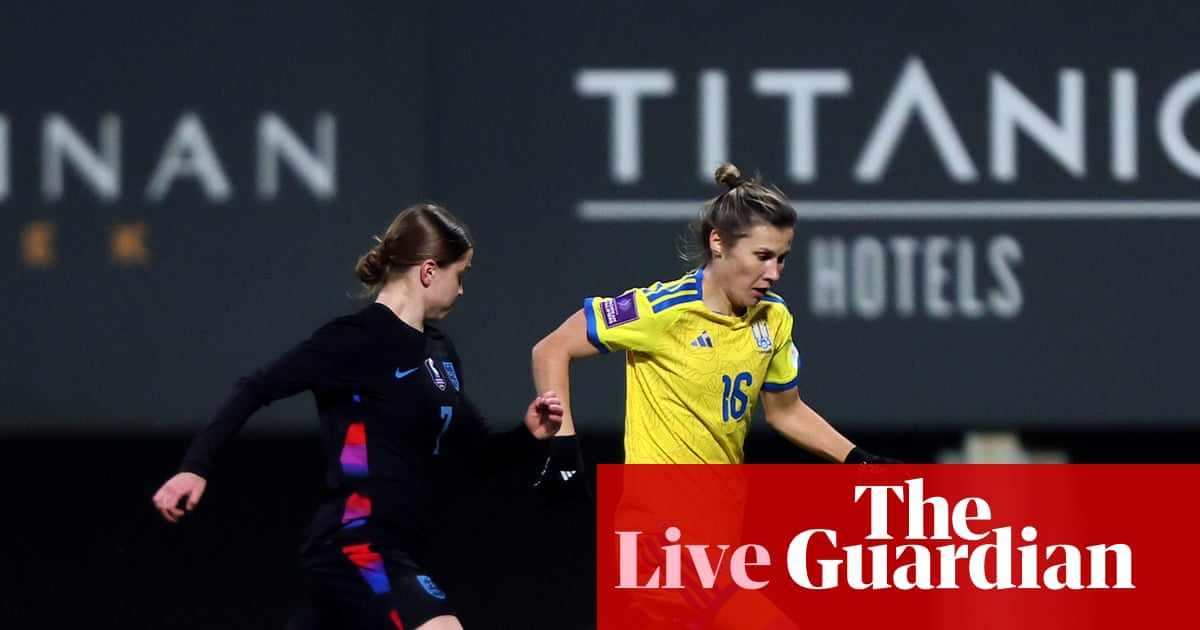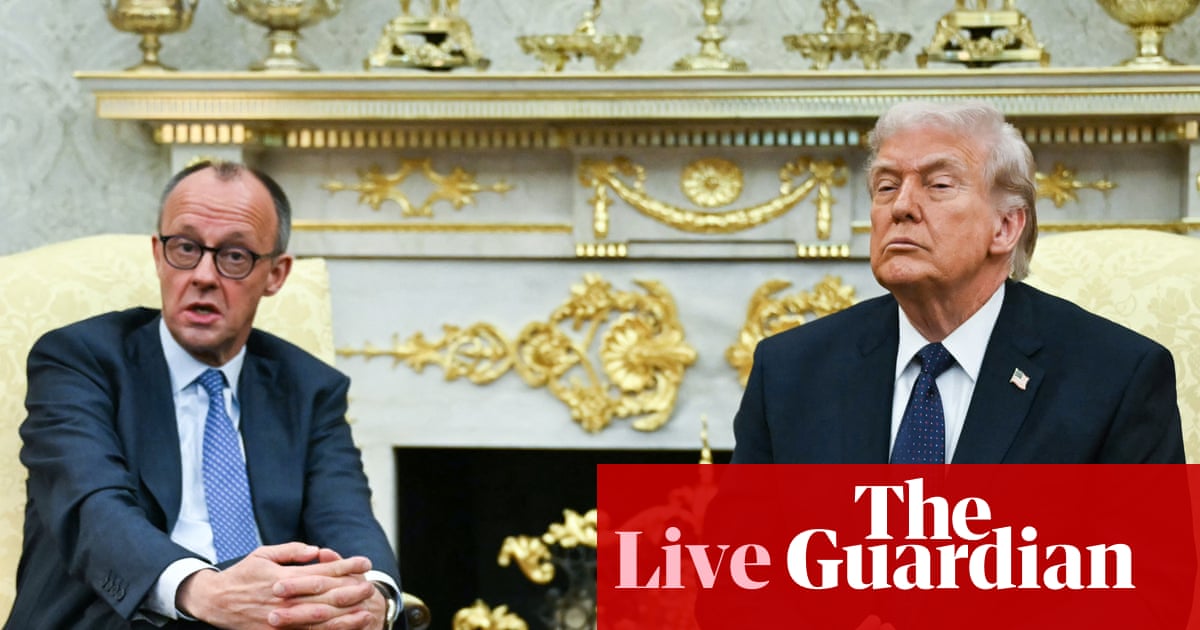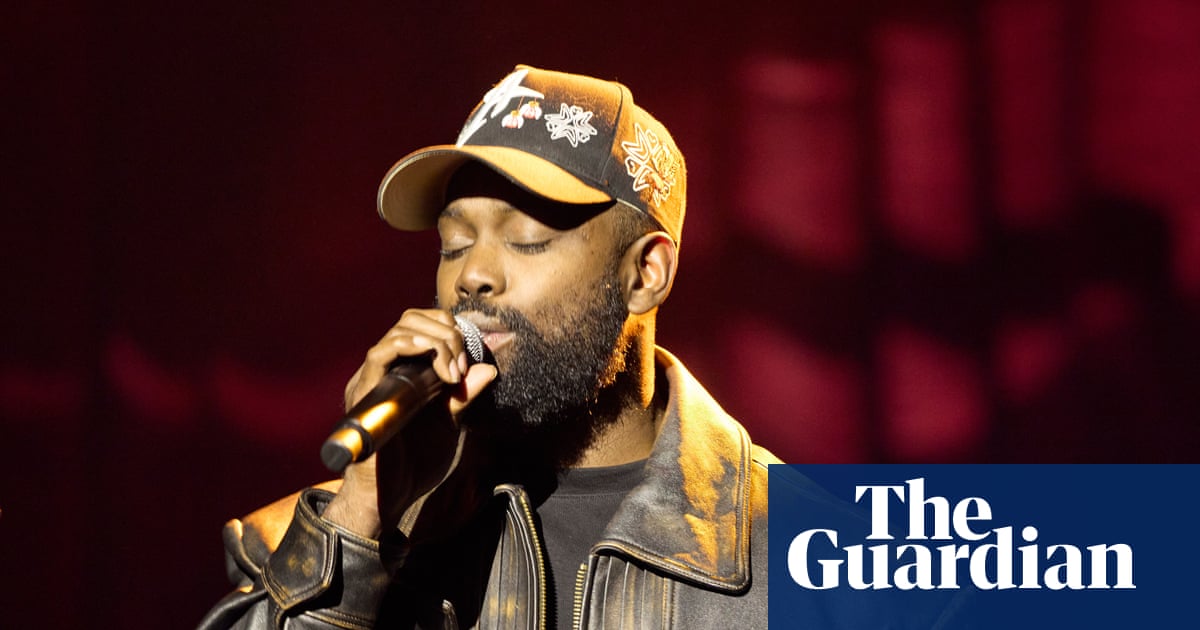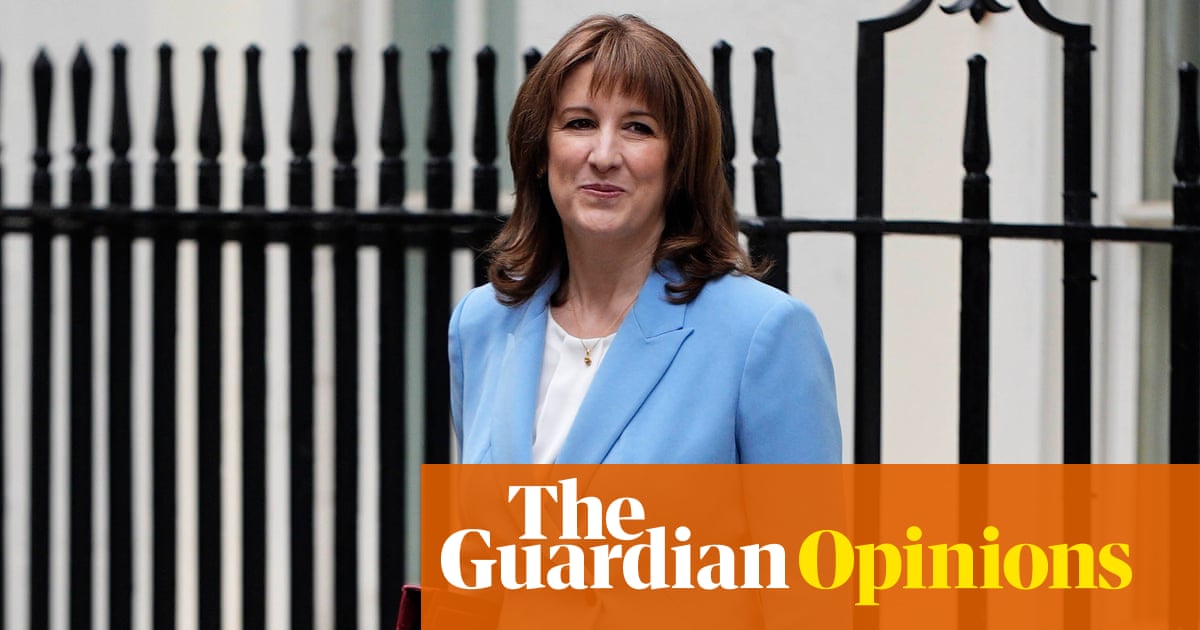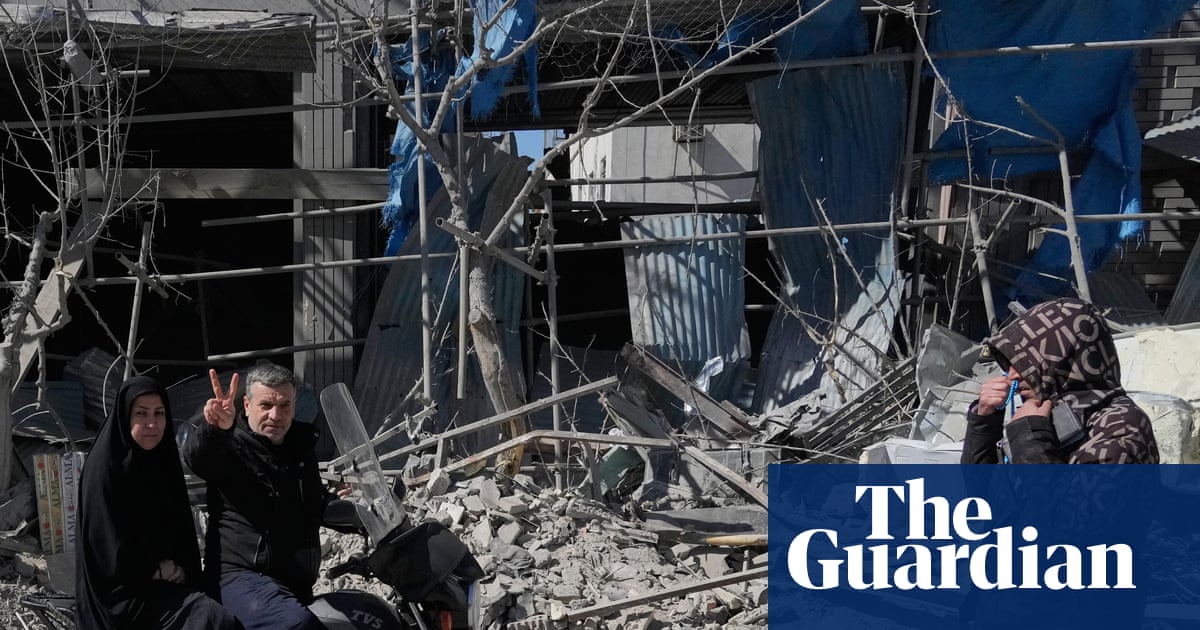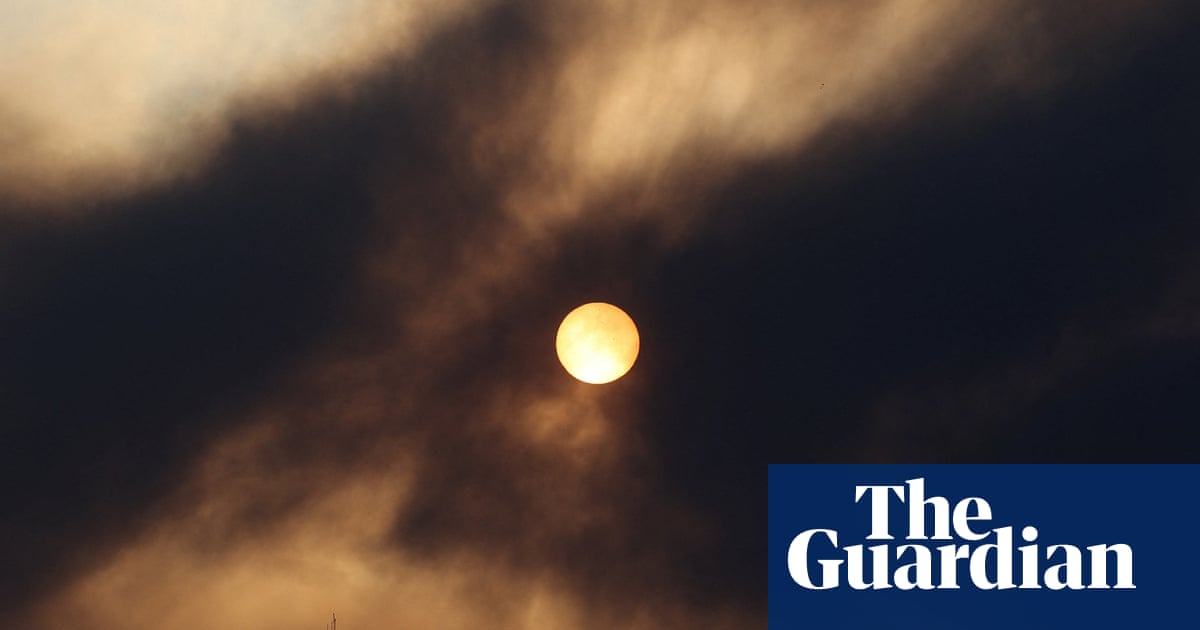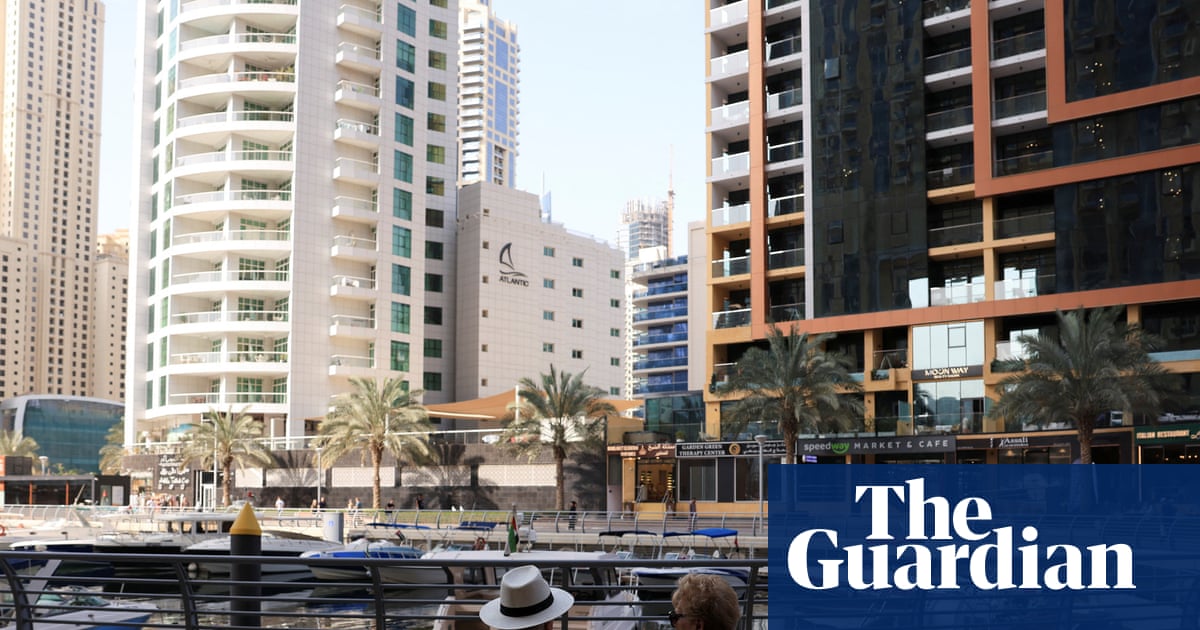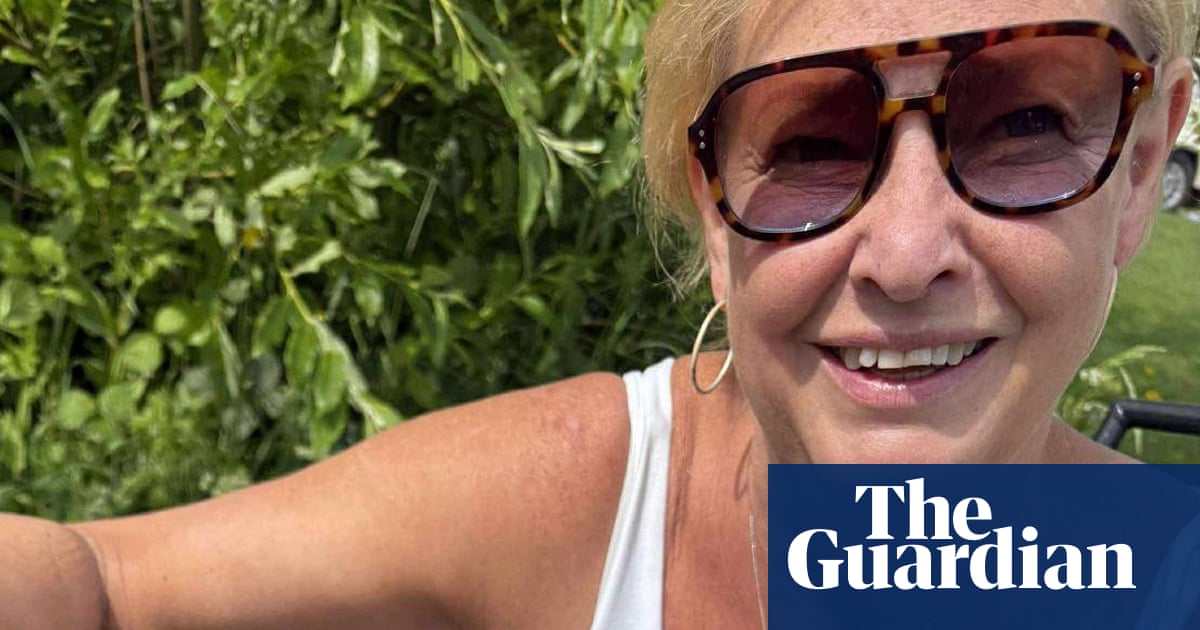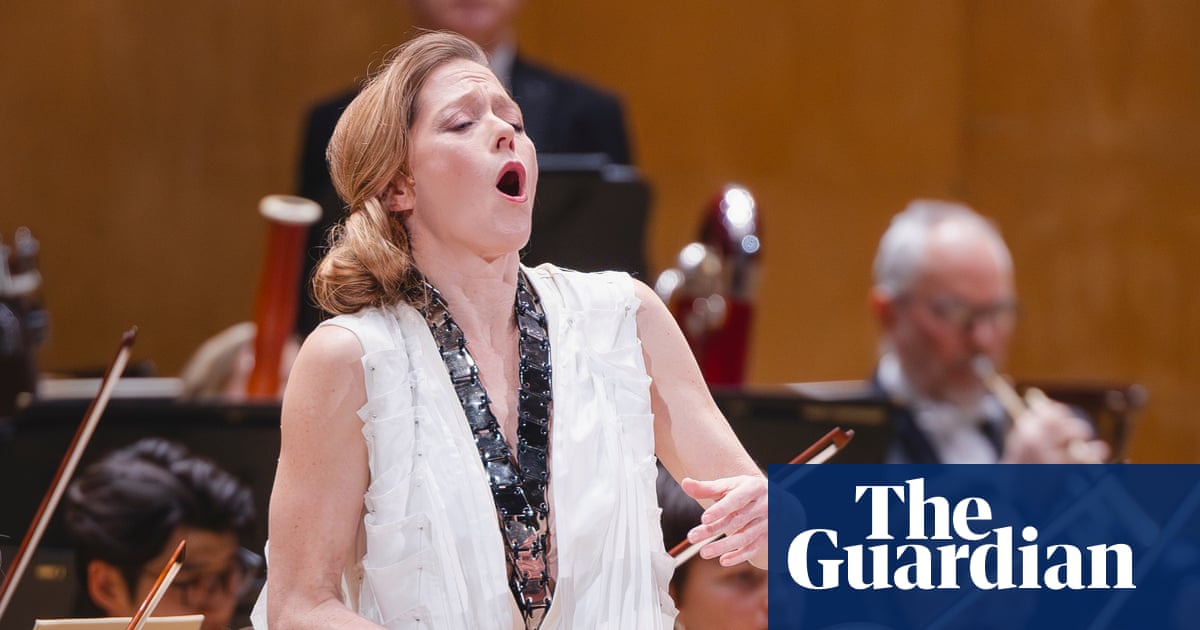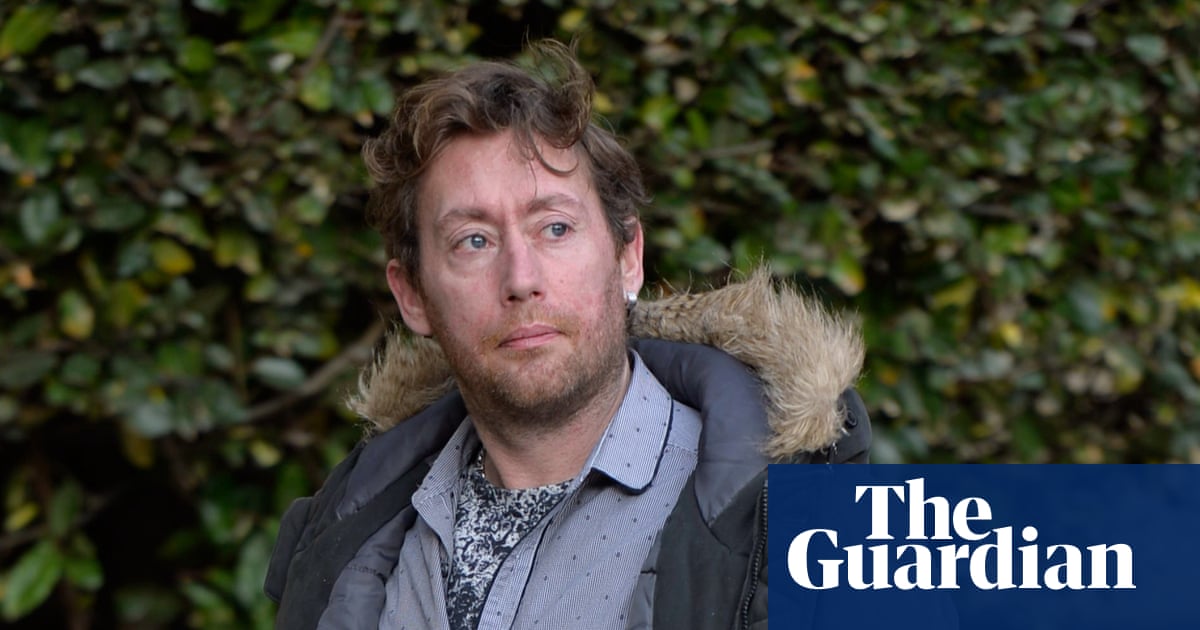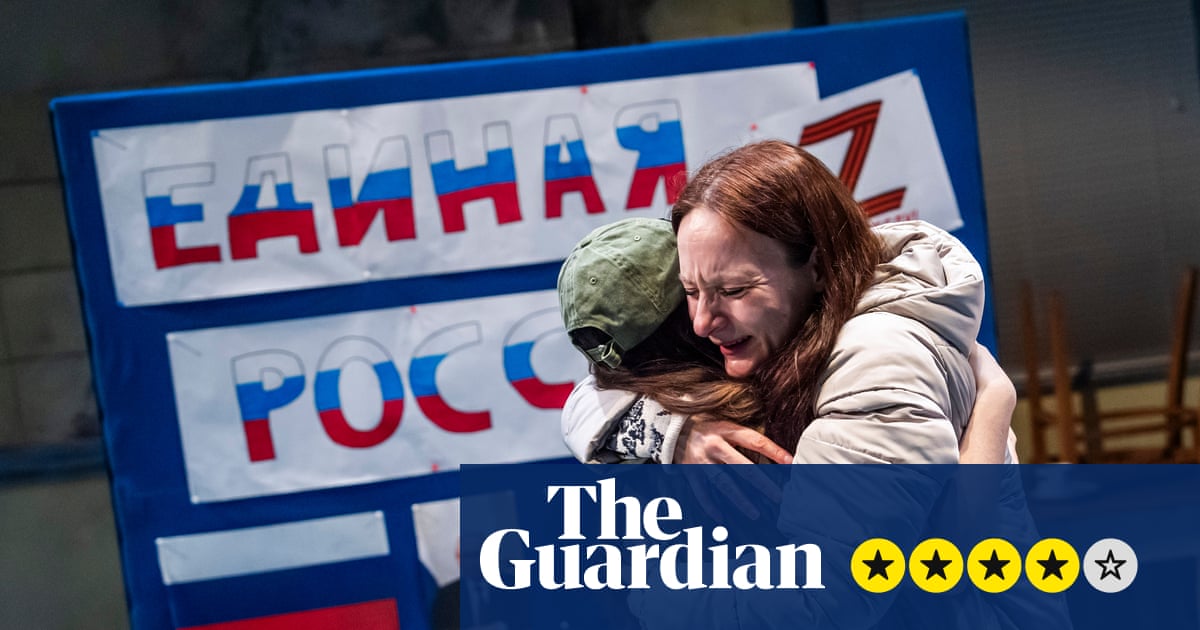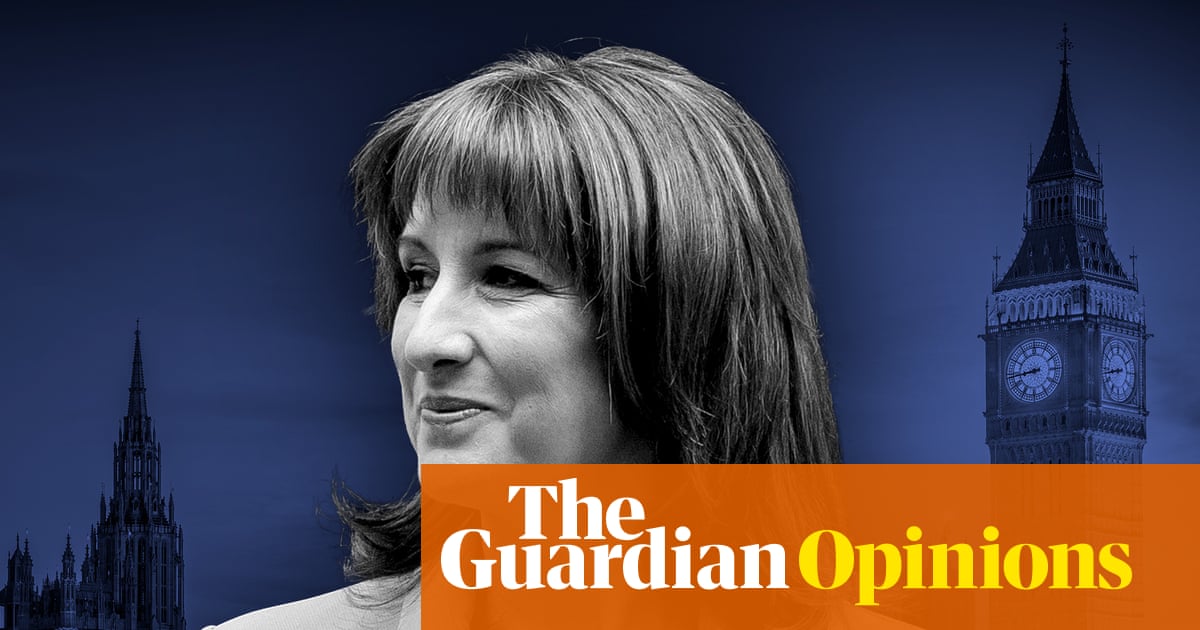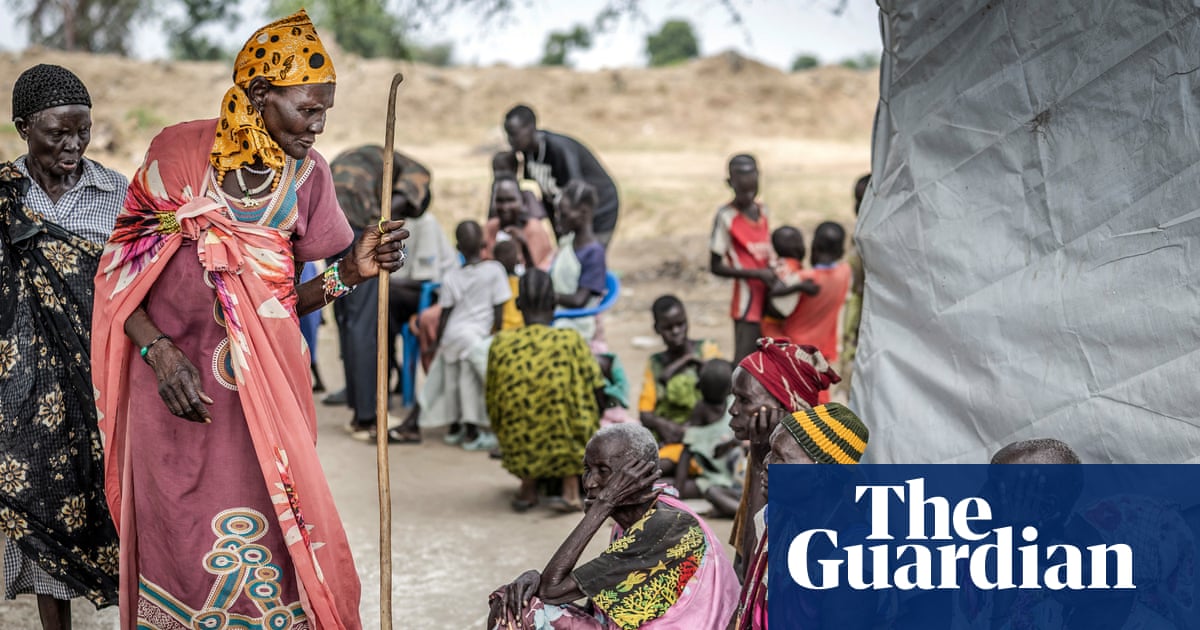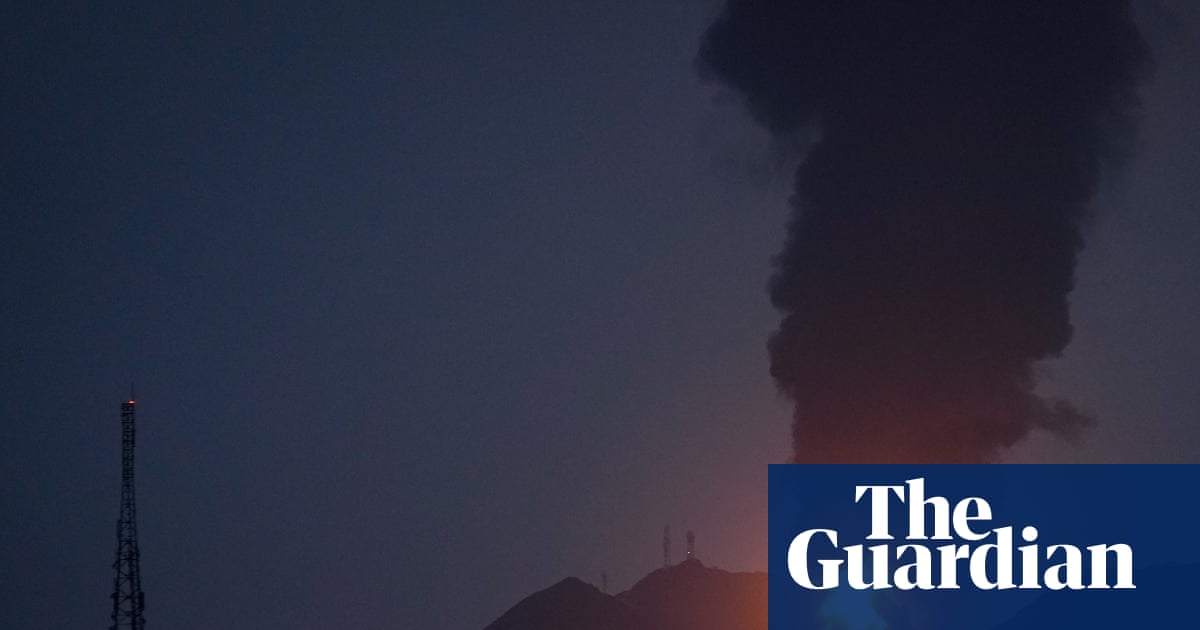“It broke my heart.” Surangel Whipps, president of the tiny Pacific nation of Palau, was sitting in the front row of the UN’s general assembly in New York when Donald Trump made a long and rambling speech, his first to the UN since his re-election, on 23 September.
Whipps was prepared for fury and bombast from the US president, but what followed was shocking. Trump’s rant on the climate crisis – a “green scam”, “the greatest con job ever perpetrated”, “predictions made by stupid people” – was an unprecedented attack on science and global action from a major world leader.
Palau, threatened by rising sea levels, floods and more intense storms, is home to nearly 20,000 people, all likely to be made refugees if global heating surpasses 1.5C for a prolonged period, a likelihood they are desperate to prevent. They know they are just the beginning, the frontline. Globally, hundreds of millions of people’s homes and livelihoods will be destroyed by climate breakdown within decades.
“Our children need hope, they need to be inspired,” says Whipps. “They need to see us coming together to solve problems.”

What they got instead was a tirade, disbelief and discouragement.
The populist tide
Whipps’s dismay is felt by vulnerable countries around the world. After years in which it appeared the world was beginning to act on the climate crisis, a populist tide has swept in, turning back or threatening progress in many democracies.
Trump’s words were just the most extreme expression of a global rightwing trend. In the EU, hard-right political groupings delayed key decisions on emissions targets, and are seeking further abandonment of climate action. The UK’s poll-topping Reform party openly embraces denial. In Argentina, Trump ally Javier Milei has taken his chainsaw to climate policy as well as the economy.
Yet polls find an overwhelming majority of people – 89% globally – are concerned about the climate crisis and want action. And there have been unexpected victories for pro-climate politicians: Mark Carney in Canada, Anthony Albanese in Australia, and Claudia Sheinbaum – a climate scientist – in Mexico.
This week, those powerful geopolitical forces will clash in the small Amazonian city of Belém. The UN climate summit, Cop30, begins on Monday, with a packed schedule for the Brazilian hosts – 145 agenda items to be decided over two weeks, ranging from questions of cutting greenhouse gases, financial help for poor countries, the rights of Indigenous peoples, boosting clean energy and preserving the world’s forests.
Squabbles among nations, bombast and competing national interests are only part of the story. Nature is giving its own account. Outside the air-conditioned conference halls, temperatures are rising fast, and for two years have breached the relatively safe limit of 1.5C above preindustrial levels that nations had vowed to keep. The evidence of climate breakdown is gathering fast: the record-breaking Hurricane Melissa that devastated Jamaica last month, temperatures climbing above 50C in the Middle East, and ocean temperatures soaring. Scientists have warned that the first of a series of “tipping points” – the bleaching of ocean corals – already appears to have been reached.
At the heart of Cop30 will be two key questions: what can the world do to stop global heating accelerating further and faster? And can it be done in time to prevent unstoppable catastrophe?
‘Belém is the test’
Brazil’s presidency of Cop30, the 30th “conference of the parties” under the UN framework convention on climate change since it was signed at the Earth summit in Rio de Janeiro in 1992, is focused on the developing world, and the host’s top priority is to try to preserve unity amid stark global divisions.
This is being called by some the most consequential Cop since the Paris agreement was signed 10 years ago. At Paris, countries set out national targets on curbing or cutting greenhouse gas emissions, but they were insufficient to hold to the 1.5C limit that the treaty stipulated. Six years later, at Cop26 in Glasgow a fresh round of pledges cut projected temperature rises further but only to about 2.7C. At this Cop nations will need to revise their targets again – but with temperatures climbing faster than expected, those revisions have to be urgent and deep.
“The Paris agreement is our mandate; Belém is the test,” says Ban Ki-moon, who was UN secretary general at the time of the Paris summit. “In a fractured world, the Paris agreement remains the one pact that shows humanity can act as one – but it needs resuscitation through action, not rhetoric. Do this, and the Paris agreement becomes a living plan that protects people and strengthens economies. If we fall short, we risk placing both its promise – and the people it was written to protect – in jeopardy.”

To ease the negotiations, world leaders were invited to Belém this week, meeting on Thursday and Friday to galvanise their ministers and officials before the official start. Trump, of course, was not among them. Nor was Vladimir Putin, whose invasion of Ukraine poured hundreds of billions in windfall profits into the coffers of the fossil fuel industry, which invested it in more fossil fuels.
Xi Jinping of China also did not go but took part virtually in lead-up meetings, at which he promised further action to shift China to a green economy. India, too, has made encouraging signals: although the country’s prime minister, Narendra Modi, skipped the summit, he visited Brasília in July, and the harsh end to last year’s Cop – when India’s negotiators refused to accept what they regarded as an inadequate pledge of $300bn (£230bn) in climate finance from the rich world – may be avoided this time.
Saudi Arabia, Russia and a few allies have a history of obstructing Cops, and Argentina may join them. There will be fights, and possible wrecking tactics.
A yawning ‘emissions gap’
The best way for pro-climate countries to stave off this threat would be to come up with strong national plans to cut greenhouse gas emissions. But, except in a few cases, this has not happened.
Nationally determined contributions (NDCs) are the bedrock of the Paris agreement. They set out how far, how fast, and by what means, countries will curb or cut carbon, in line with the goal of limiting global heating to 1.5C above preindustrial levels.
At the time of writing, fewer than 90 countries had submitted their NDCs, though the official deadline passed in February, with China and the EU only giving an indication rather than submitting final plans.
Taken together, the NDCs received so far would achieve only a sixth of the emissions cuts needed to hold to the 1.5C goal, according to UN estimates.
Brazil has been reluctant to address the inadequacy of the NDCs. The presidency team has insisted they are not a formal part of the Cop30 mandate, as they are up to individual nations to draw up. It was only after protests that space was created within the agenda even to discuss NDCs, and it is still unclear whether there will be an outcome that mandates clear steps to fill the yawning “emissions gap” between what has been pledged and what is needed.

Brazil says it wants to focus on “implementation”, rather than words in windowless negotiating rooms. And in some respects, climate action is – in some regions and some sectors – flourishing in ways that were scarcely imagined possible even a decade ago. Renewables, led by solar and wind, accounted for more than 90% of new power capacity added worldwide last year, with solar now the cheapest electricity in history. Global clean-energy investment is expected to reach $2.2tn this year, which would be about twice fossil-fuel spending. Last year, one in five of new cars sold around the world was electric, and there are now more jobs in clean energy than in fossil fuels.
That sort of real-world action is what makes a difference to people – it gets climate action out from the negotiating rooms, and the corporate boardrooms, and into living rooms, in the words of the UN climate chief, Simon Stiell.
Demands of the global south
Brazil is also acutely conscious that developing countries will judge this Cop on how far it helps them attain their key goals: financial assistance to help them adapt to the impacts of climate breakdown, and investment in their economies to shift to clean energy. “We need a fair deal,” says Mohamed Adow, director of the Power Shift Africa thinktank. “These are not acts of charity – they are investments in a stable, livable planet. We need to see the sharing of clean energy technology by the global north with the global south.”
Finance was the key issue at last year’s Cop, but the deal reached there left a bitter taste with many poor countries. Cop29 agreed a goal of ensuring that $1.3tn a year should flow to the developing world by 2035, but rich countries agreed to provide only $300bn of that, leaving the rest to come from private sector revenue-raising mechanisms such as the levy on shipping (now postponed) and a charge on frequent flyers, as well as the carbon markets and philanthropy.
But without the US, even the paltry $300bn pledge of the developed world last year looks harder to achieve.
Cooperation among countries in the global south – which could include China, and some of the middle-income countries that have already started on a greener path – will also be key.
Arunabha Ghosh, chief executive of an Indian thinktank, the Council on Energy, Environment and Water, and a special envoy to the Cop30 presidency, said: “We are all under collective siege and when you’re under siege, the more you hunker down together, the better chances you have to survive the real and metaphorical hurricanes coming at us.”
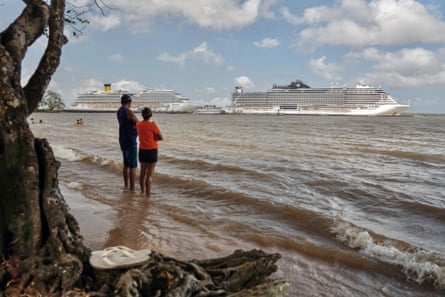
World leaders who jetted in over the Amazon rainforest, its green vastness scarred and pockmarked by widespread logging, ranches and small individual farm clearings, are in no doubt as to Brazil’s key demand from them: to sign up to the Tropical Forests Forever Facility (TFFF). For the presidency, this will be the single most important achievement of Cop30: a fund that will be used to keep existing forests standing.
Brazil wants to gather pledges of $25bn for the TFFF initially, using this to attract a further $100bn from the global financial markets. The money would be dispensed to forested regions, rewarding them for reducing deforestation and providing finance for biodiversity conservation work.
But the subject the hosts seem much less comfortable with is the root cause of the climate crisis: fossil fuels. At Cop28 in Dubai in 2023, a historic resolution was made – that the world must “transition away from fossil fuels”. It may seem astonishing that this was the first time in 30 years of talks the subject had been addressed directly – the intransigence of petrostates and the need for consensus within the UN process had prevented such a move before.
As soon as it was over, fellow petrostates – chiefly Saudi Arabia – began to try to unpick the agreement. At Cop29 in Azerbaijan – another economy heavily dependent on exporting oil and gas – attempts to reaffirm the resolution were stymied.
Supporters want to pick up the fight again this year, though about 50 countries are thought to want to prevent it being discussed.
Brazil ranks in the top 10 global oil and gas exporters, and is prospecting for new fields, some of them offshore from the Amazon. The country’s president, Luiz Inácio Lula da Silva, has strongly defended the rights of poor countries to carry on exploiting their resources, arguing it is the rich countries that have benefited from them for two centuries, and caused the climate crisis, who must stop.
For the next fortnight, Brazil’s role is to facilitate this debate, and the host’s decisions on how to handle the issue will be crucial.
A just transition
“It undermines the credibility of Cop if Cop can’t deal with fossil fuels,” says Leo Roberts at the E3G thinktank.
If there is such a discussion, it can only take place in the context of a global “just transition”, argue civil society groups. That means ensuring that workers, the poor and the vulnerable are not abandoned or exploited in the race to clean energy.
António Guterres, the UN secretary general, acknowledged the problem in July, saying: “The critical minerals that power the clean energy revolution are often found in countries that have long been exploited. And today, we see history repeating. Communities mistreated. Rights trampled. Environments trashed. Nations stuck at the bottom of value chains while others reap rewards. And extractive models digging deeper holes of inequality and harm. This must end.”
China controls the majority of the world’s critical mineral supply chain, but the US is keen to expand its share. Neither has historically been keen on UN initiatives that impose fresh rules on their markets, but Lula has long been a strong proponent of workers’ rights.
With fights over the agenda inevitable, coupled with the lack of trust between rich and poor nations, and the potential for threats from the US and its allies, Brazil may count it a victory if the Cop proceeds without major disruption. Democracy in Brazil, as in many countries riven by populist politicians and suffering economic hardship, is in a fragile state – simply holding things together is hard enough.
But the poor and vulnerable around the world need and deserve much more, says Meena Raman, head of programmes at the Third World Network. Future promises of better behaviour will not be sufficient to safeguard them. They need action now, finance now, and a clear plan for sticking as close as possible to 1.5C.
“It is no longer sufficient to merely invoke the need to save multilateralism,” she warns. “We must deliver on saving the planet and protecting the world’s most vulnerable. What is needed now is bold, accountable action that prioritises justice, equity and survival.”

 3 months ago
119
3 months ago
119
